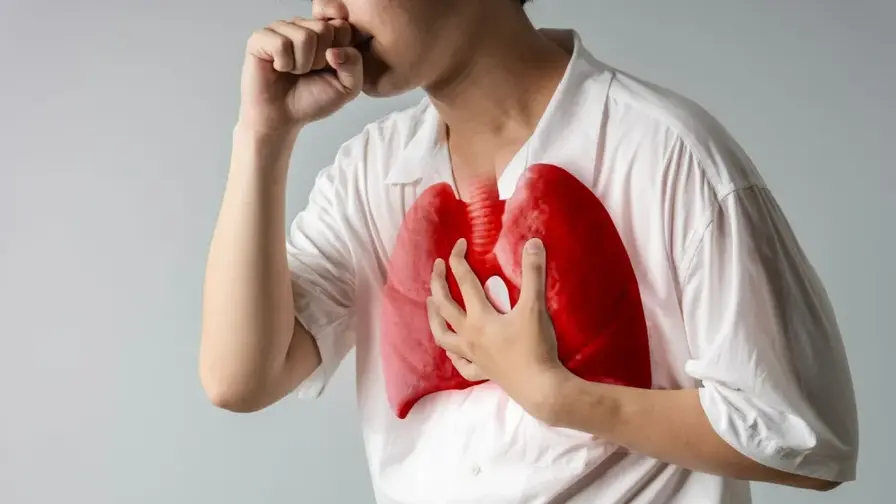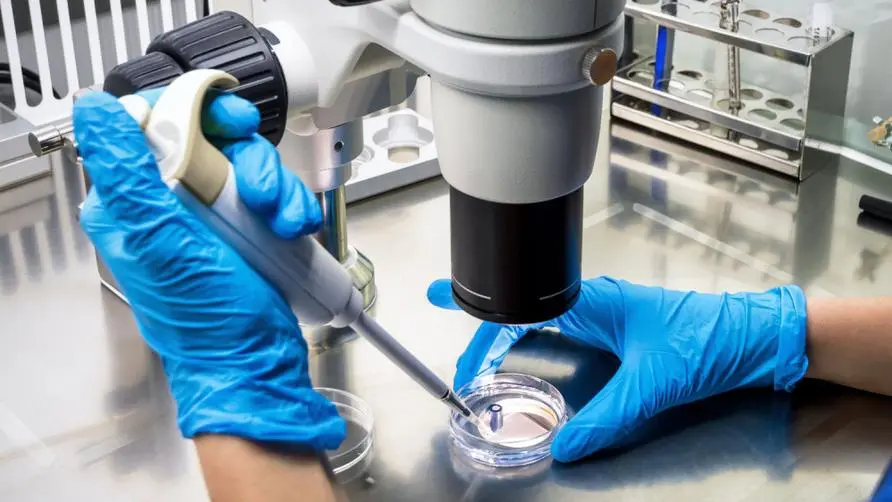The prognosis of breast cancer in young people is poor and the disease is more advanced? Doctors reveal the key to "precision treatment": 3 types of breast cancer patients must undergo genetic testing

Are the number of young people with breast cancer high and the prognosis poor? Doctor: Most hormone receptors are positive
There are about 17,000 new cases of breast cancer in Taiwan every year. Breast cancer not only ranks first in the incidence rate of female cancers, but also ranks in the top three of the top ten cancers in terms of increase in the number of breast cancers. Chen Shoudong, chairman of the Taiwan Breast Medical Association, said that the absolute number of breast cancer cases in Taiwan has increased. Although the peak incidence rate has moved later, the proportion of premenopausal breast cancer is as high as 32%, which is higher than the 25% in Europe and the United States. Among the subtypes of premenopausal breast cancer, “hormone receptor-positive” is the largest subtype, and its prognosis is even worse than that of postmenopausal hormone receptor-positive breast cancer.
“There are more young breast cancer patients in Taiwan who are hormone receptor positive, but the prognosis is poor, because hormones can be regarded as nutrients for breast cancer and can easily stimulate tumor growth!”
Dr. Chen Shoudong said that the “non-recurrence” rate of breast cancer under the age of 39 is the lowest among all breast cancer age groups, which shows that young breast cancer and “very young breast cancer” need to actively cooperate with doctors to receive appropriate treatment and regular follow-up. In recent years, new approaches to breast cancer treatment development, including antibody drug complexes (ADCs) and oral cell cycle inhibitors (CDK4/6 inhibitors), have attracted the most attention. Especially if premenopausal breast cancer metastasizes, menopausal needle (oophorectomy) combined with cell cycle inhibitors and hormonal treatment will not only have a better survival rate, but also have the effect of making the metastatic lesions disappear.
One in three breast cancers affects young women! High proportion of late stage and easy to relapse?
Dr. Feng Anjie from the General Surgery Department of the Tri-Service General Hospital explained that breast cancer risk factors include long-term drinking, smoking, nullity or late childbirth, early menopause or late menopause, and a family history of breast cancer or ovarian cancer, all of which are relatively high-risk groups. Cancer registration data in 2020 show that one out of every three breast cancer patients is a young woman, and young breast cancer patients face multiple concerns about survival, treatment methods, drug selection, and recurrence rates, and their quality of life faces great challenges.
“The biggest differences between young breast cancer and older breast cancer include a higher proportion of positive hormone receptors, a higher degree of tumor malignancy, and a higher proportion of late stage diagnosis. This may be due to the fact that young women consider themselves to be healthier and tend to ignore the threat of breast cancer. related!”
Dr. Feng Anjie pointed out that 1 in 4 breast cancer cases will recur or metastasize after 5 to 10 years of treatment. Among them, more than half of the high-incidence “hormone-positive/HER2-negative” (luminal type A, luminal type B) will relapse and metastasize after 5 years of treatment, and related gene mutations can easily increase the risk of recurrence and metastasis. Mutated hormone-positive/HER2-negative breast cancers are prone to drug resistance and have poor treatment effects, requiring individualized and precise treatment strategies.
Breast cancer moves towards personalized and precise treatment! Identify mutated genes and develop treatment strategies
“Times are changing, technology is advancing, and drugs are constantly improving and being introduced. If the test finds that it belongs to the most common subtype of hormone positive/HER2 negative, you must follow up regularly after treatment!”
Dr. Feng Anjie said that there are multiple options for breast cancer treatment, including surgery, chemotherapy, immunotherapy, targeted therapy, hormonal therapy, etc. Nowadays, breast cancer treatment has moved towards personalized and precise treatment. Through next-generation gene sequencing (NGS), multiple breast cancer-related gene mutations such as PIK3CA, BRCA1, and BRCA2 can be detected at the same time, and then the most suitable treatment strategy can be formulated with precision. Medication reduces side effects and speeds up return to normal life. Genetic testing is recommended for breast cancer patients who have hormone-positive/HER2-negative recurrence and metastasis, have a family history of cancer gene mutation, early-stage breast cancer size of 1-5 cm, and 0-3 lymph node metastases.
Dr. Feng Anjie pointed out that for post-metastatic hormone-positive/HER2-negative breast cancer, current research indicates that oral cell cycle inhibitors (targeted drug CDK4/6 inhibitors) can be used. The mechanism is to block the division cycle of cancer cells and allow Tumor cells cannot divide and shrink. Use with hormonal drugs can help breast cancer patients achieve better disease-free survival and better overall survival rates.
Is Taiwan’s breast cancer survival rate lower than that of Japan, South Korea, Europe and the United States? Doctors call for implementation of part of the burden to curb waste
“Taiwan’s breast cancer survival rate is even less ideal than that of Japan, South Korea, Europe and the United States. This is related to drug payment and the overall attitude of Taiwanese people towards medical expenditures!”
Dr. Chen Shoudong said that when new drugs including oral cell cycle inhibitors (targeted drug CDK4/6 inhibitors) are not included in health insurance benefits or do not meet the conditions for payment, more ideal treatment opportunities may be lost. On the other hand, efforts should be made to reduce the medical waste of Taiwanese people, such as promoting a partial payment system, which can increase health insurance revenue and take care of more cancer groups in need.
Dr. Feng Anjie reminded that Taiwanese people’s awareness of breast cancer screening has increased, and their acceptance of mammography and various cancer screenings has increased. For young breast cancer, genetic testing can not only help distinguish different subtypes of cancer and find the most appropriate treatment, but also Helps assess post-treatment status. Especially hormone-positive/HER2-negative patients with a high risk of recurrence must undergo regular examinations as instructed after treatment. Even if metastasis, recurrence or drug resistance occurs, early intervention should be performed to control the cancer cells, which is expected to achieve a better quality of life.
Further reading:





